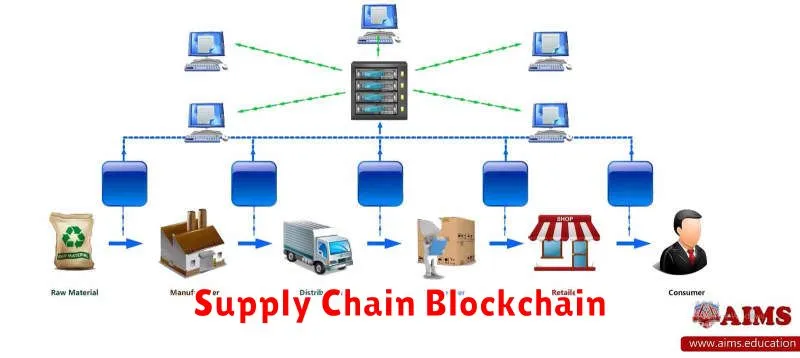The blockchain technology is rapidly transforming industries, and the supply chain sector is no exception. This article explores how blockchain is revolutionizing supply chain management, enhancing transparency, security, and efficiency. Learn how businesses are leveraging blockchain’s immutable ledger to track products, improve traceability, reduce fraud, and ultimately, build more trust and resilience within their supply chains. Discover the key benefits, challenges, and future implications of this groundbreaking technology.
Improving Transparency in the Supply Chain
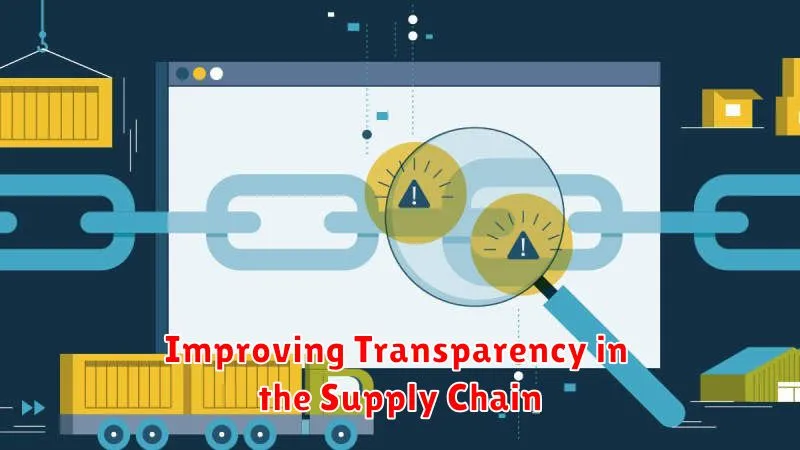
One of the most significant ways blockchain is revolutionizing supply chains is by drastically improving transparency. Traditional supply chains often lack visibility, making it difficult to track products from origin to consumer. This opacity can lead to inefficiencies, fraud, and a lack of accountability.
Blockchain technology addresses this by creating a shared, immutable ledger that records every transaction and movement of goods throughout the supply chain. All participants—from farmers and manufacturers to distributors and retailers—can access this information, providing a real-time, verifiable record of the product’s journey.
This enhanced transparency offers several key benefits. Businesses gain better inventory management and can improve forecasting. Consumers gain increased confidence in the authenticity and origin of products, fostering trust. Furthermore, it facilitates easier traceability in case of product recalls or quality issues, minimizing disruptions and potential harm.
The increased accountability provided by blockchain also helps combat counterfeiting and unethical practices. By tracking each step of the supply chain, it becomes significantly harder to introduce fraudulent products or exploit vulnerable workers.
In short, blockchain’s ability to enhance transparency across the supply chain fosters efficiency, trust, and accountability, leading to a more sustainable and ethical global trade system.
Reducing Fraud with Blockchain
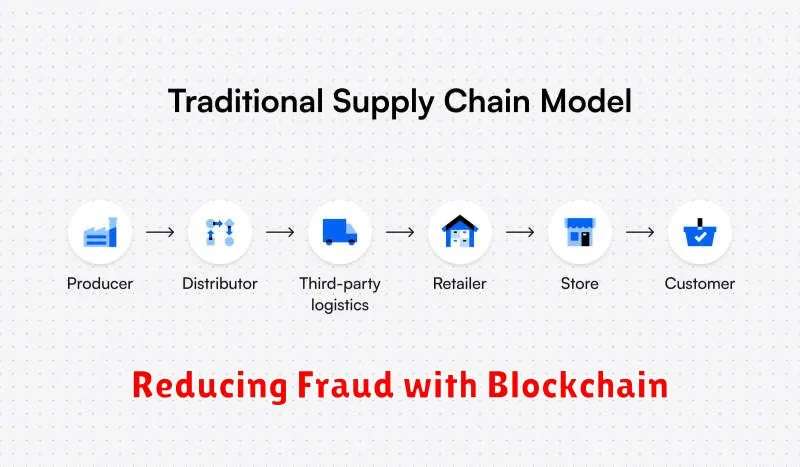
Blockchain technology offers a powerful solution for mitigating fraud within supply chains. Its decentralized and immutable nature creates a transparent and secure record of transactions, making it significantly more difficult to alter or fabricate data.
By recording every step of the supply chain journey on a shared, cryptographically secured ledger, blockchain eliminates the vulnerabilities inherent in traditional, centralized systems. This enhanced traceability allows businesses to quickly identify and verify the authenticity of products, preventing the introduction of counterfeit goods or mislabeled materials. The immutability of blockchain also ensures that once a transaction is recorded, it cannot be easily altered or deleted, further reducing the risk of fraudulent activities.
Furthermore, smart contracts, self-executing contracts with the terms of the agreement between buyer and seller directly written into lines of code, can automate processes and reduce the potential for human error or intentional manipulation. This automation streamlines payments and ensures that all parties involved receive the agreed-upon goods and services, leading to a more efficient and trustworthy supply chain ecosystem.
In essence, blockchain’s inherent security features and transparency provide a powerful tool for detecting and preventing fraud, creating greater trust and accountability throughout the entire supply chain.
Enhancing Product Tracking
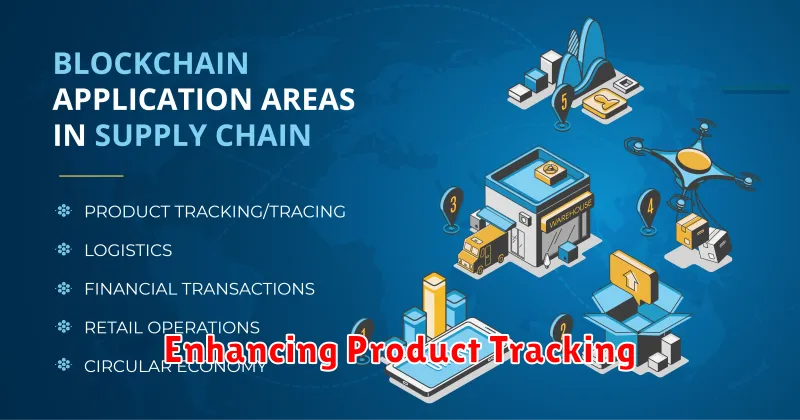
Blockchain technology offers a revolutionary approach to product tracking within supply chains. By leveraging its inherent immutability and transparency, blockchain creates a secure and auditable record of a product’s journey from origin to consumer.
This enhanced tracking capability provides several key benefits. Real-time visibility into a product’s location and status is readily available to all authorized parties. This significantly improves efficiency and reduces delays caused by information asymmetry.
Furthermore, blockchain facilitates the creation of a single source of truth, eliminating discrepancies and fostering trust among stakeholders. This is particularly crucial for combating counterfeiting and ensuring product authenticity. The decentralized nature of blockchain makes the system more resilient to tampering and fraud.
Ultimately, improved product tracking through blockchain translates to enhanced supply chain reliability, reduced costs associated with lost or damaged goods, and increased consumer confidence in product provenance.
Streamlining Supplier Payments
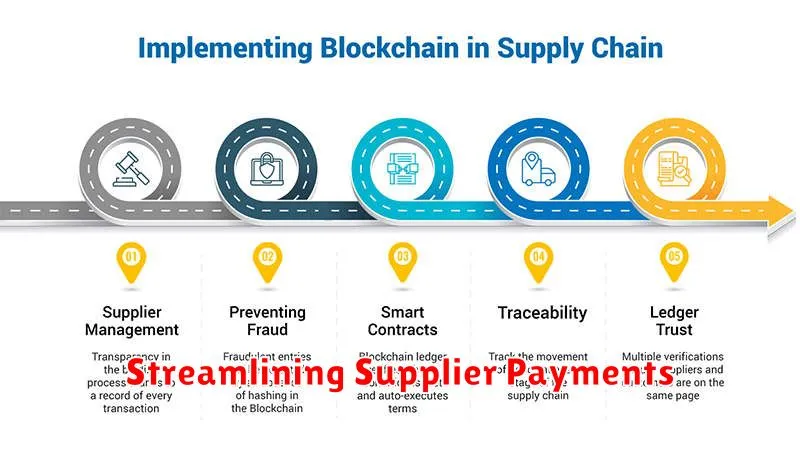
Blockchain technology offers a significant advancement in streamlining supplier payments within supply chains. Traditional methods often involve multiple intermediaries, leading to delays, high costs, and a lack of transparency.
By leveraging distributed ledger technology, blockchain creates a secure and transparent platform for recording and tracking payments. This eliminates the need for intermediaries, significantly reducing processing time and costs. Smart contracts automate payment releases upon fulfillment of agreed-upon conditions, further enhancing efficiency and reducing the risk of disputes.
The increased transparency provided by blockchain allows all parties involved to view the payment status in real-time, fostering trust and improving collaboration. This enhanced visibility improves cash flow management for both buyers and suppliers, reducing financial risk and improving overall supply chain efficiency.
Furthermore, blockchain’s immutable record-keeping minimizes the risk of fraud and errors, ensuring accurate and auditable payment transactions. This contributes to a more reliable and efficient payment process, ultimately strengthening the relationships between buyers and suppliers.
Building Consumer Trust
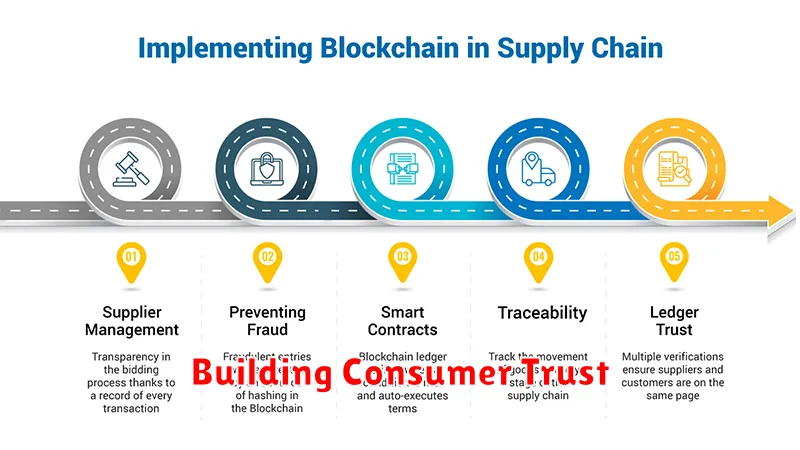
Blockchain technology offers a powerful solution to a major challenge in modern supply chains: building and maintaining consumer trust. Transparency is key. Blockchain’s immutable ledger allows for the tracking of products from origin to consumer, providing verifiable information about sourcing, manufacturing, and handling.
This enhanced transparency directly addresses consumer concerns about product authenticity and food safety. Consumers can access detailed information about the journey of their products, increasing their confidence in the brand and the product’s quality.
The immutability of blockchain data also helps prevent fraud and counterfeiting. Because records are cryptographically secured and cannot be altered, consumers can be assured of the product’s legitimacy. This creates a stronger sense of security and reinforces trust in the supply chain.
Ultimately, increased transparency and reduced fraud contribute to a significant improvement in consumer confidence. This bolsters brand reputation, fosters loyalty, and drives sales by demonstrating a commitment to ethical and responsible sourcing practices.
